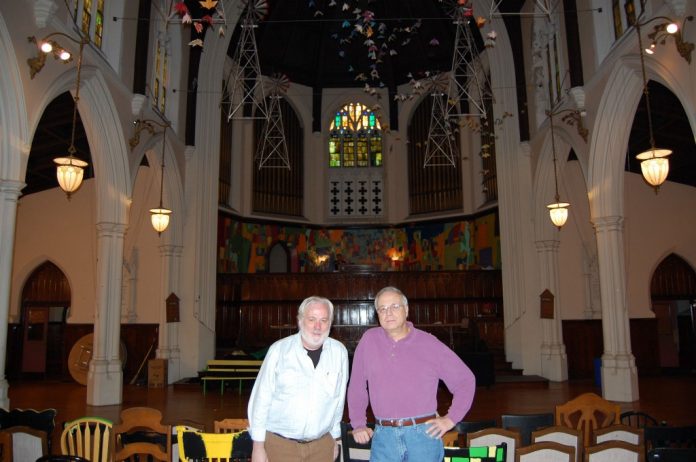It’s fair to say that not all wounds a veteran may suffer while in military service are physical.
In fact, deep emotional scars can plague veterans for years following their return to the States. And these wounds often can take longer to heal and be more difficult to treat than a physical injury.
To target this type of distress and provide the emotional healing that a soldier and his family may need, the Council for Relationships hosts a program called Operation Home and Healing.
According to Edd Conboy, acting director of social services for the Broad Street Mission, at 315 S. Broad St., and director of Operation Home and Healing, the program is designed to help ease the emotional and psychological stress that military veterans feel after they return home.
These days in particular, for troops returning from the wars in Iraq and Afghanistan, emotional stress likely is worse than it might have been for soldiers returning from Vietnam, Conboy noted.
“This isn’t your father’s or grandfather’s veteran,” he said. “The stress levels are beyond anything we’ve seen.”
Much of this stress can be exacerbated by the repeated tours of duty undertaken by military veterans battling these wars on terrorism, he said.
These repeated deployments can take their toll. The constant return to the front line would wear on anyone, he said.
In fact, he said, his own father served in the military in World War II and did one tour of duty — which spanned five battles for him, including storming the beaches of Normandy — but Conboy believes that soldiers returning now from the harrowing action in Iraq have suffered deeper emotional scars.
“Even with all of that stress, I would say they weren’t as stressed as veterans now . . . these guys are doing what my dad did four or five times,” said Conboy. “It’s a different world.”
Often, he said, soldiers returning to America are confronted with crumbling families. Divorce and dealing with remarriages and child-custody issues are common concerns, he explained.
Also, with more women serving in all roles of military combat, he said, children often have to get reacquainted with mothers who have become out of touch during lengthy service in Iraq or Afghanistan.
Another concern, Conboy said, is the staggering statistic that about one-third of female soldiers have experienced some sort of sexual assault while serving in the military.
“We are seeing much more resilience,” he said. “And they face some difficult situations. Let’s face it, some of them left for the military because their families weren’t that great to begin with. Then they return home and there are still problems.”
Yet, even as they face these complex issues, Operation Home and Healing can address these problems and help soldiers cope with them, Conboy said.
“The picture is dark but hopeful,” he said. “At Operation Home and Healing, we are reconstructing home and family.”
To combat these problems, Operation Home and Healing reaches out — especially to veterans who might be homeless — by connecting soldiers with therapy through skilled counselors who can relate to their experiences.
With a staff of about 90 throughout the Council for Relationships, there are about 23 counselors trained to work with veterans.
While the Council for Relationships has been working with members of the armed forces since the agency’s start in 1932, Conboy started the Operation Home and Healing program about four years ago specifically to focus on helping veterans coming home from Iraq and Afghanistan, though the program is open to all veterans.
In that time, the program has helped more than 55 veterans get back into their homes, become closer to their families and/or deal with the stresses related to military service.
“We try to do what the VA (U.S. Department of Veterans Affairs) can’t,” said Joe Eastman, a veteran and outreach officer for Operation Home and Healing.
“People are truly welcome here. When people walk through that door, they know they are going to be treated as human beings,” Eastman continued. “It’s a real sense of relief.”
Eastman recalled a Navy veteran of the Gulf War who recently walked in off the street, in need of help because he was homeless.
“I knew of a group in West Philly that had a bed. I called in the morning and they said he will have a bed tonight,” Eastman said. “When you say it’s for a veteran, nobody ever lets you down.” ull;•
For more information on the Council for Relationships’ Operation Home and Healing, visit the Web site at www.operationhomeandhealing.org or call 215–382–6680.
Reporter Hayden Mitman can be reached at 215–354–3124 or [email protected]





